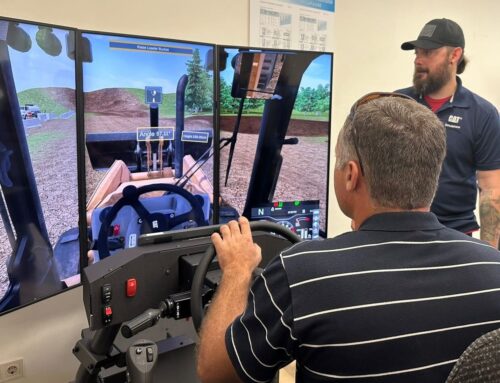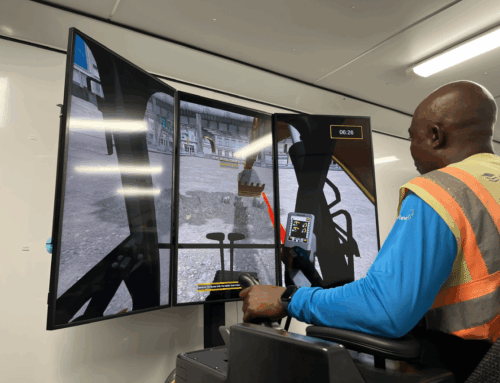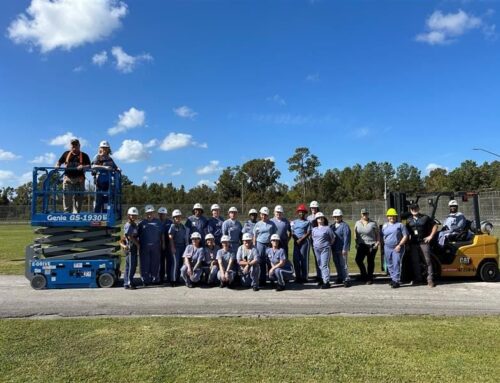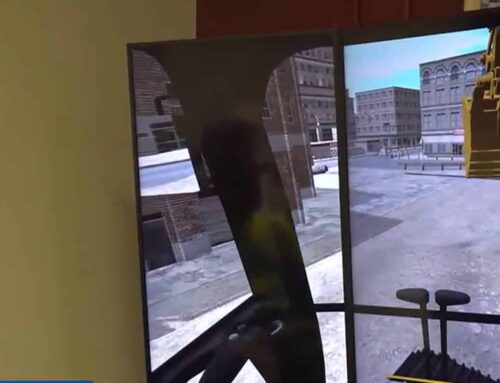Since 2017, the Nevada Department of Corrections (NDOC) has been helping to build the state’s workforce. High Desert State Prison (HDSP) is the largest state prison in Nevada and houses approximately 3,800 inmates. Its vocational program is made up of culinary, automotive, and construction, and is the location for the Heavy Equipment Operator Apprenticeship Readiness Program (also its largest program). The Clark County School District oversees the adult education program.
When the heavy equipment program began several years ago, only those creating the vision and framework might have imagined the impact it would make. There is a waiting list to get into the program that features Cat® Simulators for several different heavy equipment models.
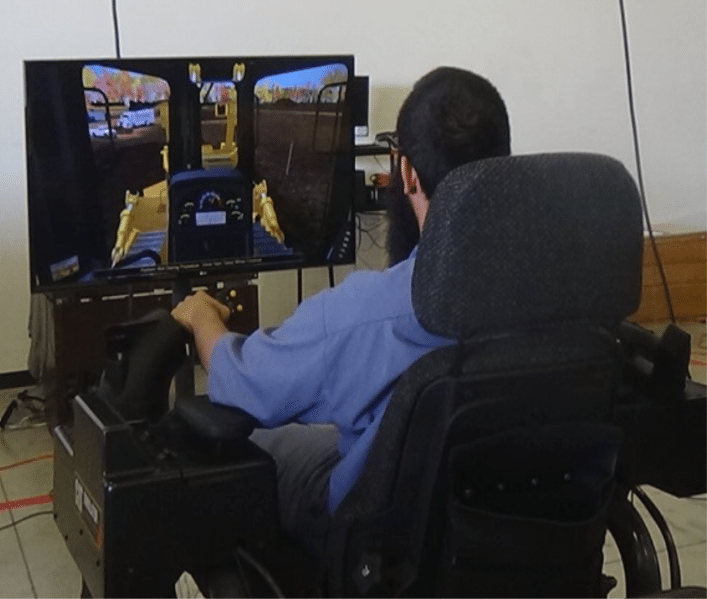
Some students (inmates), union leaders, and various business representatives testified in the Nevada Legislature during hearings on behalf of SB 207, the Apprenticeship Utilization Act. The bill requires apprentices on construction sites. It was passed and went into effect January 1, 2020.
More than 120 students go through the 18-week program each year (Covid affected that number because of shut-downs). “It’s a very popular and well-regarded program. For some, it is technology they have never experienced before. Students get immersed into the activity,” says Michael Budd, Career & Technical Education (CTE). During the last year, the facility has done some new buildouts with the program moving to a new classroom. The plan is to add another simulator.

The program comprises almost 500 hours of training when completed. HDSP has partnered with the Nevada Building Construction Trades Council to introduce inmates to apprenticeship opportunities upon completion of programs. Trades include the IBEW, the United Association of Plumbers and Pipefitters, Ironworkers, and others. These are good paying careers with health insurance and pensions.
Budd uses Cat Simulators records management software, SimU Campus™, to track users during every simulation session. In practice mode, the results are displayed but not automatically saved. In exam mode, every attempt is recorded and saved. Students are given multiple attempts at passing the exam. “The SimU program provides a plethora of data and metrics and is instrumental in measuring the progress and productivity of the operator,” says Budd. Productivity is the key metric which measures how efficiently the machine is being operated. “The more productive the operator can be, the more profitable the equipment becomes,” he adds.
When asked what aspects of the simulators benefit the students, he believes its the familiarization with operator controls and the built-in muscle memory achieved by performing the tasks until productivity levels are met. “If you make a mistake on a simulator it’s more forgiving than making that same mistake on a job site,” Budd shares. Students rate the immersion experience highly.
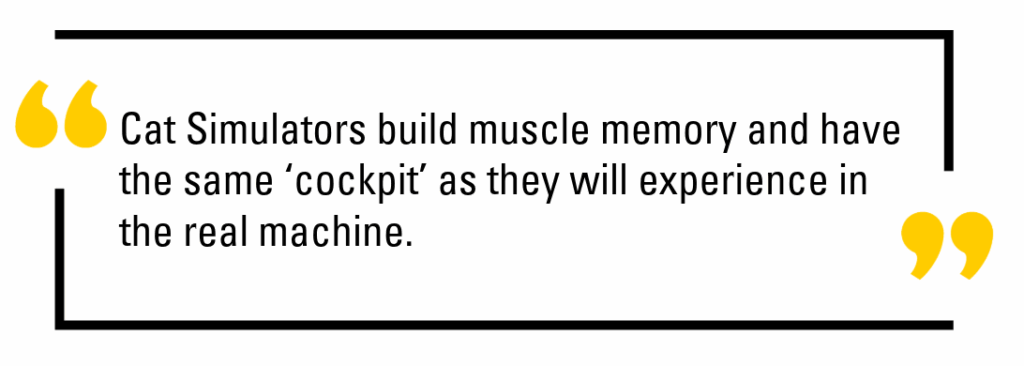
Budd says the best part of Cat Simulator training is being immersed in the learning environment. “It feels like you are actually operating the equipment on multiple sensory levels and you tend to forget that you are ‘learning’ and focus on the act itself. It it is much like video game players feel and experience when they are competing and gaming. This might also be the most important part because the learning feels authentic and worth the effort.” Instructor Bruce Waltermeyer agrees. “The simulators provide a realistic construction environment for the students. A majority of our students have never been on a jobsite or experienced the type of discipline that operating a piece of equipment requires. Operating the equipment builds confidence and teaches the student to plan ahead and become more efficient,” he adds.
HDSP’s heavy equipment program also helps inmates who don’t go on to a construction career. Classes include workplace safety details and exam preparation. Classes also help prepare students for the interview process on both sides of the table—interviewer and applicant. In addition, students learn soft skills such as money management and financial planning, computer skills, conflict resolution in the workplace, and basic math skills.

Once the students receive certificates and are released from the prison, they are prepared to be considered for the union apprenticeship program. The program is so successful it inspired Nevada’s Senate Bill 207. The bill requires a contractor or subcontractor engaged on a public work to employ one or more apprentices for a certain percentage of the total hours of labor performed, depending on the type of work performed. Furthermore, it requires a contractor or subcontractor to enter into an apprenticeship agreement for all apprentices required to be used during the construction of a public work. Several students testified on behalf of the Nevada DOC’s positive impact on recidivism and the impact it had on them as inmates.
Budd relays, “Each of our vocational programs at NVDOC helps our students develop real world skills and get jobs. We have received positive feedback from several businesses and unions with regard to the positive performance of former students.”



